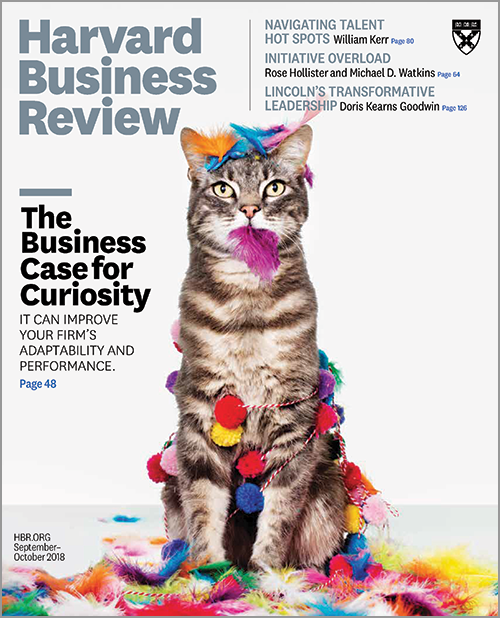If you have been reading my blog for any amount of time, you’ll know that I’m an HBR junkie. I just dug into my latest issue and what jumped out at me were two articles with similar themes: curiosity.

Jim Lamse
It may surprise many of you that, despite my almost 2 decades in the technology sector, I was actually a German/Art History double-major (with a minor in art for good measure) in college. I had a wonderful German professor, Dr. James Lamse (God rest his soul), who insisted on the importance of asking questions. His reasoning was that if you didn’t know enough of the language to actually speak it, just ask someone a question about themselves and they would happily blather on and on, leaving you off the hook! Practicality aside, he was also thoroughly convinced of the value of learning from others (especially others from another culture). He knew there was no better way of learning from others than by asking them questions. I was deeply inspired by this lesson as an 18 year old and the older I get, the more I see the profound wisdom in it.
The first article I read was titled Research: Perspective-Taking Doesn’t Help You Understand What Others Want. The premise of the article is this: while we’re encouraged to view things from someone else’s perspective, the effectiveness therein is diminished when we make assumptions about what that other perspective is. A better approach is to ask questions of the other person, and thereby get an accurate picture of their perspective, rather than jumping to wrong conclusions. (I don’t know about you, but nearly 100% of the time when someone approaches me to tell me they “have a gift for reading people”, they are absolutely wrong.) I think Prof. Lamse was on to something.
The second article I read was penned by the new CEO of SurveyMonkey, Zander Lurie (SurveyMonkey’s CEO on Creating a Culture of Curiosity). Zander was a close friend of Dave Goldberg, the previous of CEO of SurveyMonkey (and husband of Facebook COO Sheryl Sandberg), and was with Dave in Mexico when Dave unexpectedly passed away after falling off a treadmill. SurveyMonkey asked Zander to take over for Dave as the new CEO. Zander had the difficult task of not just keeping the company afloat while comforting employees through intense grief, but he also needed to set new direction for the company.
Those who create surveys are necessarily seeking information from others by asking questions. SurveyMonkey seized hold of this and started incorporating the value of curiosity into all facets of its corporate culture. Employees who ask questions at town halls are rewarded, and a hashtag (“#greatquestion”) has been incorporated into internal chats.
Our customer and employee surveys revealed that the behaviors that define curiosity—asking good questions, listening deeply, being open-minded, valuing new experiences, challenging the status quo, and staying keenly aware that no one has all the answers—were prevalent among SurveyMonkey’s best customers and its best employees. We began to think about how we could increase the curiosity level within our culture to better serve our customers. Enhancing this quality doesn’t happen organically—you have to approach it deliberately. -Zander Lurie
One of the great occupational hazards of being a consultant is coming off as condescending, since you probably wouldn’t have been engaged in the first place unless there wasn’t someone who knew less than you, who asked you for help. (I do my best to not come off as the character “Nick Burns, Your Company Computer Guy” from Saturday Night Live sketches nearly 20 years ago.)
In my younger days I was a bit more dogmatic in terms of how I thought my clients should implement their solutions. Maybe it’s old age, or maybe it’s a little wisdom that comes with said old age, but I now do more asking of questions and less pushing of a solution on my clients. Rather than asking my clients what technology they want to implement, I try ask them what job they are trying to accomplish. And by asking questions, I not only elicit information from my clients, but I’m also able to guide the conversation so they may be open to hear what I propose.
If you want to read some more articles about the value of curiosity and how to cultivate it in your organization, check out the Harvard Business Review’s September – October 2018 issue.

